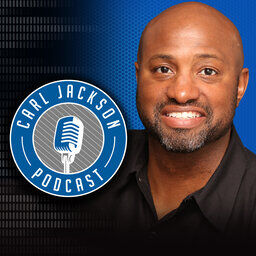Report: Free speech at colleges across Northeast tempermental
National News

Audio By Carbonatix
4:39 PM on Tuesday, September 9
(The Center Square) – America’s colleges are not faring well when it comes to their handling of free speech issues on campus – in fact, most deserve a grade of “F,” according to a newly released report.
The results of a student survey at 257 schools nationwide reveal a poor free speech climate, less tolerance for controversial speakers, and more acceptance of aggressive tactics to silence campus free speech.
The sixth annual College Free Speech Rankings, released on Tuesday by the Foundation for Individual Rights and Expression, or FIRE, also shows a continued decline in support for free speech among all students. Additionally, conservative students are increasingly joining their liberal peers in supporting censorship.
The rankings come at a notable time, said FIRE’s press release, “with clashes over the Israeli-Palestinian conflict, a vigorous and aggressive culture of student activism, and the Trump administration’s persistent scrutiny of higher education.”
This year, students largely opposed allowing anycontroversial campus speaker, no matter their politics, said FIRE President and CEO Greg Lukianoff.
“Rather than hearing out and then responding to an ideological opponent, both liberal and conservative college students are retreating from the encounter entirely. This will only harm students’ ability to think critically and create rifts between them. We must champion free speech on campus as a remedy to our culture's deep polarization.”
Pennsylvania Schools
According to FIRE, the state’s average grade for speech climate is “F,” matching the national average.
Of 15 Pennsylvania schools ranked, Gettysburg College earned the top spot – 91 overall – followed closely by Carnegie Mellon University and Penn State-Main Campus, at 98 and 109 respectively.
All three schools hold “yellow light” ratings in FIRE’s Spotlight database, meaning their written policies contain at least one provision that threatens student expression.
Drexel, Lafayette, Villanova, and Haverford hold “red light” ratings because they maintain at least one policy that clearly and substantially restricts protected expression.
Franklin & Marshall and Gettysburg are the only schools that adopted the pro-free speech Chicago Statement. And the University of Pennsylvania was the only one to adopt a statement on institutional neutrality.
FIRE notes there is significant room for improvement since none earned a “green light” rating and most performed poorly. Reforming written policies and reinforcing public commitments to expressive rights would help raise the free-speech climate on campuses across the state.
Overall, ratings of commonwealth schools range from Gettysburg at 91 to Drexel University, near the bottom, at 243.
The Best
This year’s top-ranked school, for the second time, is Claremont McKenna College in California. They were in the top ten on nearly every student survey component – a rare achievement.
They have distinguished themselves on the policy front, maintaining a “green light” rating from FIRE since 2018. Along with Vanderbilt University, they are one of two schools to adopt both the Chicago Principles and an official position of institutional neutrality prior to 2020.
These commitments, FIRE says, likely contribute to its strong performance on the “Administrative Support” component, where it ranks second nationwide.
Purdue University, the University of Chicago, Michigan Technological University, and the University of Colorado at Boulder round out the top five.
Most Improved
Vanderbilt University, Dartmouth College, and Yale University all improved significantly this year, ranking 7, 35, and 58 respectively.
Those with the most improvement in their scores worked to reform their policies and recently implemented new programs supporting free speech and encouraging open discourse.
The Worst
Harvard University, which ranked last the previous two years, was replaced by Barnard College in New York City – a private liberal arts women’s college affiliated with Columbia University.
The report states the situation at Barnard is “especially stark.” Its “Administrative Support” score is just 6.52 – more than four standard deviations below the national average of 11.32, and the lowest in the history of the College Free Speech rankings. Columbia, by contrast, scores 8.37, nearly two standard deviations higher.
Columbia, Indiana University, the University of Washington, and Northeastern University round out the bottom five.
The Issues
Over half of students – 53% – say the Israel-Hamas conflict is a difficult topic to have an open and honest conversation about on campus. Notably, on 21 campuses surveyed, at least 75% of students said this – including 90% of the students at bottom-ranked Barnard
Additionally, shouting down a speaker, blocking entry, or using violence, to stop a campus speech, all increased at record-high percentages since last year.
One of the most striking findings was the decline in the percentage of students willing to allow controversial speakers on campus – and the drop is even sharper for controversial liberal speakers than conservative ones.
“More students than ever think violence and chaos are acceptable alternatives to peaceful protest,” said FIRE Chief Research Advisor Sean Stevens.
He said the finding cuts across partisan lines and is not a liberal or conservative problem – it’s an American problem. “Students see speech that they oppose as threatening, and their overblown response contributes to a volatile political climate.”
FIRE says the rankings reveal a bleak picture: 166 of the 257 schools evaluated include some of the nation’s most prestigious institutions and received an overall score below 60 – a failing grade.
The highest-rated school received only a B-, marking the first time any institution has scored higher than a C+. However, only 11 schools earned a “green light” rating and a campus speech climate grade of C or higher. The report says this means most American colleges and universities are failing to protect and foster free expression.
“In an era when open inquiry and dissent are more essential than ever, campus speech climates are not just unhealthy – they are in free fall.”

